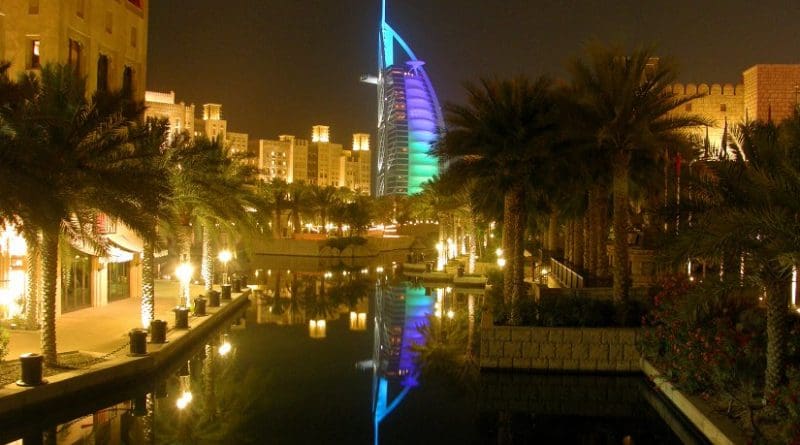Dubai More Appropriate Arena To Defend Globalization Than Davos – OpEd
By Arab News
By Frank Kane*
For the second time in a few weeks, Prof. Klaus Schwab, founder of the World Economic Forum (WEF), has been obliged to mount a robust defense of globalization, free trade and laissez-faire economic principles.
Last month, he was on stage at the WEF’s annual meeting in Davos, Switzerland, extolling the virtues of China’s President Xi Jinping, who emerged as an unlikely champion of the global order largely by criticizing the policies of the new US administration, though without naming President Donald Trump specifically.
On Sunday, Schwab was on guard again at the World Government Summit in Dubai. This time he did not have a Chinese president to hold up as a role model, and his defense of the global order that the WEF has been instrumental in building was all the more effective for it.
Dubai is probably a better place to mount a defense of globalization than Davos. The annual shindig in the Swiss Alpine town has too many connotations of elitism, and examples of extravagant excess, to persuasively make the point that globalization has benefited everybody in the world and can continue doing so.
Globalization has lifted hundreds of millions of people, mainly in Asia, out of the poverty levels of mere subsistence. World trade has enriched the material lives of hundreds of millions more, and opened up channels of cultural communication between peoples of very different backgrounds to the benefit of all.
Dubai — which is a truly cosmopolitan city all year round, rather than for just a few days in January as in Davos — is a more appropriate place to hear that message. As host to more than 100 nationalities, where religions of all kinds can be openly practiced, and where standards of liberalism and tolerance are the highest in the Arabian Gulf and among the highest in the world, the emirate is an example of globalization in practice.
It has also contributed to the economic wellbeing of many millions of people, through the salaries of expatriate workers in the United Arab Emirates (UAE), and through remittances sent home to lift living standards in villages and towns throughout Asia and Africa.
So in Dubai, Schwab is to some extent talking to the converted, but he was careful to point to the pitfalls of globalization too. He said the world is living through an “identity crisis” brought on by economic inequality and the unleashing of political and social forces inimical to the key message globalization.
The election of Trump, and the very real possibility of a breakup of the EU in the wake of the UK’s Brexit vote, have unleashed political movements that are the antithesis of globalization: Nationalistic, parochial, protectionist and xenophobic.
It is among these groups that the “identity crisis” is at its most profound. Schwab used the example of a worker “somewhere in mid-America” who had seen traditional industry run down by global trends, and whose community might be blighted by the social and economic problems of a post-industrial environment. This is the “American carnage” Trump raises as a spectre of fear.
This ties in nicely with Schwab’s other big theme: The Fourth Industrial Revolution, and the profound effects it has already had on economic systems and society. It is this trend, rather than unequal trading relationships or cheap foreign labor, that is having the greatest effect on the US, and which is prompting the Trump reaction.
It is difficult to know what to do about this apparently inexorable historic trend. Schwab talked vaguely about “putting human beings at the center of government,” of effecting some kind of compromise between nationalism and globalization, and of “humanizing” technological change to remove the “fear of the future.”
Those are grand words and lofty sentiments. But what they mean in practice, in the face of a US president who is apparently unfamiliar even with the basic concepts, is an entirely different proposition. Challenging the new protectionism will require more specific remedies than just well-meaning phrases.
Perhaps the gathering in Dubai gives us the first insight into how this might be achieved. In a society committed to the future, and to diversity and tolerance, might just be found the roots of a new formula for “responsible and responsive” government in a post-global world. It seems a more likely incubator for this new world order than the tired old cliches of Davos.
*Frank Kane is an award-winning business journalist based in Dubai. He can be reached on Twitter @frankkanedubai

